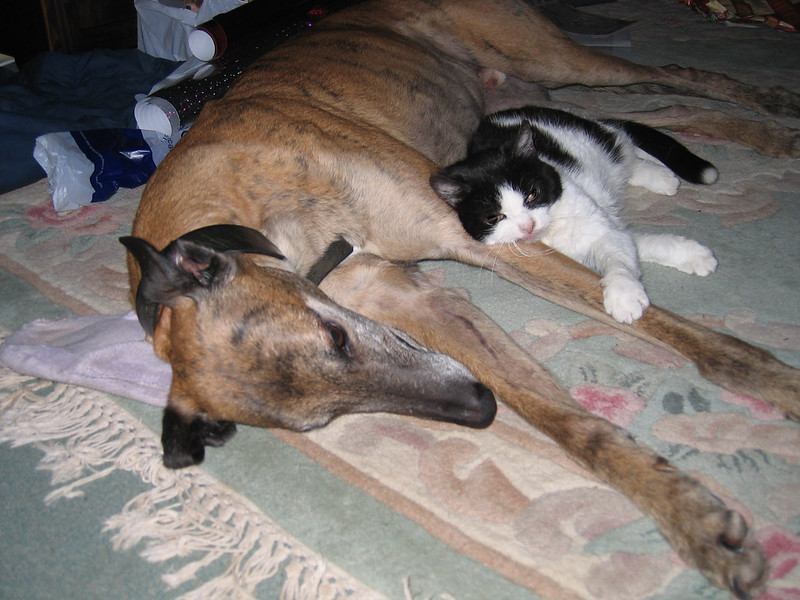|
People coping with Alzheimer’s disease can sometimes become agitated or aggressive as the disease progresses. Agitation often means that a person is restless or worried. This may present itself as pacing, sleeplessness, or aggression. Aggression can be both verbal and physical.
Staying organized and keeping a regular home-cleaning routine can be beneficial for those living with Alzheimer's. It is important to remove potential distractions or hazards that may cause confusion or agitation, as well as reduce the number of choices that need to be made throughout the day. Making simple changes such as labeling cupboards, drawers, and medicine cabinets can help to provide greater structure and clarity. Establishing a routine can also help to make sure tasks like washing dishes and making the bed are done on a regular basis so that messes don’t stack up and create unnecessary stress. Furthermore, leaving reminders around the house can provide helpful prompts for those who may have difficulty remembering things from one moment to the next. This Alzheimer's Home Safety Checklist will help you make sure the home is safe and comfortable. Most of the time agitation and aggression will happen for a reason. When it happens, try to identify what is triggering the behavior. If you are able to address the underlying cause of the behavior you may be able to reduce or avoid incidents all together. Unfortunately, a person with Alzheimer’s may not be able to communicate their needs well so here are a few things you should look for:
Watch for early signs of agitation. If you see the signs, you can deal with the cause before problem behaviors start. Try not to ignore the problem. Doing nothing can cause the issues to escalate. Here are a few ways you can address agitation or aggressive behavior: 1. Reassure the person by Speaking calmly. 2. Listen to their concerns and frustrations. 3. Try to show that you understand if they are angry or scared. 4. Allow the person to keep as much control in their life as possible. 5. Try to keep a routine by bathing, dressing, and eating at the same time everyday. 6. Try soothing music, reading, or going for a walk. 7. Reduce noise. 8. Reduce the number of people in the room. 9. Try to redirect the person with a favorite snack, object, or activity. 10. Limit the amount of caffeine and sugar. Also consider visiting a doctor. He or she can give the person an exam to find any problems that may not be readily apparent. You may also want to ask about depression and find out if medicine is needed to prevent or reduce incidents. Coping with agitation and aggression can be exhausting, not just for your loved one but for you as well. It’s essential that you also take care of yourself. You’ll be in a better position to give your loved one the patience and support they need when you’re rested and healthy. If you are feeling overwhelmed ask other family members or friends to step in so you can take a break. You can also explore respite care and other professional support services, including specialized memory care assisted living communities which can help you take time out from your caregiving duties. For many people considering assisted living the concern over what to do with a beloved pet may weigh heavily on the decision-making process. Luckily enough many assisted living communities welcome your furry friends. Pet policies will vary slightly from community to community but here are a few things they will be looking at.
Health and wellness: It is no surprise that an assisted living community will take health into consideration. You will likely need to present examination and immunization records from a licensed veterinarian. The vet will need to verify that your pet is free of any diseases that could be transmissible to humans or other animals in the community. Size: Many communities will limit the size of dogs they will allow. 35 pounds seems to be a common cutoff point, but this is not a hard and fast rule in all assisted living communities. Demeanor: You pet will likely need an assessment from a staff member to consider your pets overall behavior. Aggressive tendencies such as growling or nipping at a person could be a deal breaker. Also excessive noise such as barking, howling or in the case of a bird, squawking could disturb other residents and might result in an eviction notice for your pet. Age and training: Most communities require that dogs and cats be at least one year old and be house broken or litter trained. As is the case for pet owners anywhere there are a number of other questions and responsibilities to consider: Is there an additional pet deposit? If so, is it refundable? Is there an additional monthly fee? Who will care for the pet if your health declines or you are away from the community for an extended period of time such as a vacation or hospital stay? Has your pet become accustomed to coming and going through a pet door? If so will your pet be able to adjust to going outside with you while on a leash? Can you still adequately care for the pet? Some communities are able to assist with pet care in a limited capacity. Ask what they will be able to assist with and if that will suite the needs of you and your pet. There are numerous benefits of pet ownership, especially for seniors. Those who miss a spouse or friends who have passed or who are generally depressed or lonely can find joy in the companionship and love of a pet. Pets require exercise and can encourage seniors to be more active which can keep their muscles, bones, joints, and minds healthy. They can also reduce boredom and keep residents engaged. The companionship can contribute a lot to happiness which can easily contribute to overall health and wellness. So if you are considering assisted living consider bringing a furry friend! Home is the foundation of life. It's the place where we feel most safe and secure, especially during times of distress and uncertainty. For seniors, having a safe and comfortable home environment is particularly vital for their overall health and wellbeing. In this blog post we will explore how to make sure seniors stay safe in their homes, from installing safety features to establishing routines that encourage independence. We’ll also look at some simple yet effective tips for creating a secure home environment that can help reduce stress and anxiety among older adults.
You can’t anticipate every problem, but go through the house room by room and check for hazards, while thinking of your loves ones current physical and cognitive limits. It is often easier to change a space than to change a person. Some things you can probably take care of right away, Some may require more work and planning. For example, think about:
|
AuthorTyice Strahl Categories
All
Archives
May 2023
|
- Home
-
Settings
- Assisted Living
- Home Care
- Independent Living
- Memory Care
- Skilled Nursing
- Adult Family Homes
-
All Communities
>
- Aspen Quality Care
- Avamere South Hill
- Brighton Court
- Brookdale Nine Mile
- Brookdale Park Place
- Cheney Assisted Living
- Cherrywood Assisted Living
- Colonial Court
- Cornerstone Court
- Evergreen Fountains
- Palouse Country
- Fairview Assisted Living
- Fairwinds
- Fairwood
- Fieldstone Memory Care
- Good Samaritan
- Maplewood Gardens
- Moran Vista
- North Point Village
- Orchard Crest
- Pine Ridge Memory Care
- Emilie Court
- Ridgeview Place
- Riverview Retirement
- Rockwood Retirement Community
- Rose Pointe Assisted Living
- Royal Park
- South Hill Village
- Sullivan Park Assisted Living
- Sunshine Health Facilities
- Touchmark Assisted Living
- Willow Grove
- Wind River
- Alderwood Manor
- Franklin Hills
- Manor Care
- North Central Care Center
- Providence St Joseph
- Regency at Northpointe
- Royal Park Health and Rehabilitation
- Spokane Veterans Home
- The Gardens on University
- Spokane Assisted Living Directory
- Locations
- Services
- About
- Senior Living Blog
- Contact




 RSS Feed
RSS Feed
